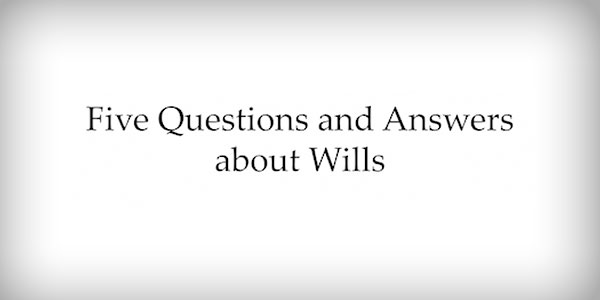Gifts Made Through Your Estate PlanGifts in Your Will
An excellent way for you to support the mission or the University of Indianapolis is to include us in your estate plan. The benefit of making a gift through your estate plan is that it allows you to continue to use the property you will leave to us during your life. When you pass away, the full value of your gift will be transferred tax-free.
A will or a trust is generally the anchor of an estate plan and including a gift to the University in your will is one of the easiest ways to pass along your values. A bequest is something given or left by will.
Click below to play the video
What are my options?
The method you use to make a gift through your estate will depend on the type of asset you choose to leave to the University of Indianapolis.
Gifts of real estate, personal property, business interests and cash can be made by way of a will, or even a simple codicil. Your attorney can assist you in preparing the necessary papers for you to complete the gift.
Other gifts made by way of your estate, such as those involving retirement assets, insurance policies, bank accounts and stocks and bonds, are typically made by completing the appropriate beneficiary designation form.
Types of gifts made in a will
- Specific Bequest - A specific bequest involves making a gift of a specific asset such as real estate, a car, other property or a gift for a specific dollar amount. For example, you may wish to leave your home or $10,000 to the University of Indianapolis.
- Percentage Bequest - Another kind of specific bequest involves leaving a specific percentage of your overall estate to charity. For example, you may wish to leave 10% of your estate to the University of Indianapolis.
- Residual bequest - A residual bequest is made from what remains in an estate after the specific bequests have been paid. A common residual bequest involves leaving a percentage of the residue of the estate to charity. For example, you may wish to leave 30% of the residue of your estate to the University of Indianapolis.
- Contingent Bequest - A contingent bequest is made to charity only if the purpose of the primary bequest cannot be met. For example, you could leave specific property, such as a vacation home, to a relative, but your will could provide that if the relative is not alive at the time of your death, the vacation home will go to the University of Indianapolis.
Bequest Benefits
- A bequest is generally a revocable gift, which means it can be changed or modified at any time.
- You can choose to designate that a bequest be used for a general or specific purpose so you have the peace of mind knowing that your gift will be used as intended.
- Bequests are exempt from federal estate taxes.
- If you have a taxable estate, the estate tax charitable deduction may offset or eliminate estate taxes, resulting in a larger inheritance for your heirs.
Helpful information for your attorney
We have some basic Sample Will Language to assist you and your attorney.
Additional Estate Planning Information
Check below to find more practical information on planning your estate.
Let us know
If you have been so generous as to include a gift to the University of Indianapolis as part of your estate plan, please take the time to let us know. We would like to recognize you and your family for your generosity.
Next Steps:
- Contact UIndy's Office of Gift Planning at 317-791-2553 or [email protected] for additional information on including a gift to UIndy in your estate plans or to speak with Darcy about which type of gift is right for you.
- Seek the advice of your financial or legal advisor.

Free Enewsletter
Subscribe to our weekly Enewsletter, featuring Washington news, finance information and donor stories.

Free Estate Planning Guide
Ready to plan your will or trust? Our free guide will provide you with helpful information to get you started.

Gift Calculators
Explore income and tax benefits for gifts that pay you during life.



